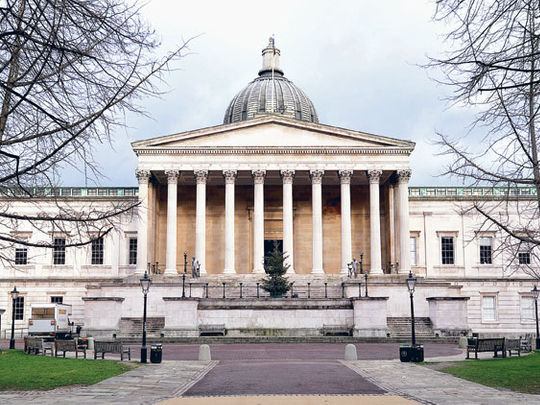
On Christmas Day last year, former University of Wollongong in Dubai (UOWD) student Omar Farouq Abdul Muttalib concealed explosives in his underwear and attempted to blow up a Detroit-bound flight from Amsterdam. Before his brief stint at UOWD, Abdul Muttalib studied at the UK's University College London (UCL) where he was president of the Islamic Society.
"For a few students who made such big mistakes, we all have to suffer," said Ebrahim Abdullah Al Fardan, 26, a UAE national who recently graduated from Massey University in Auckland, New Zealand. The comment largely reflects the mood of Muslim students on international campuses around the world, who have once again been dragged into the media spotlight.
Campus Notes spoke to students from various campuses abroad who said that although not much has changed for them, cases of abuse and discrimination, which have been happening for years, can be attributed to false Western media portrayals of Islam.
"The Western media makes people fear students," said Al Fardan. "Maybe 1 per cent of Muslim students carry out such attacks but a large majority of us are not like this."
Hamad Shere, president of the Muslim Student Association at the University of California, Davis, in the US, said increased public dependency on the media as a reliable source of information fuels animosity towards Muslims in the West.
"I think some media outlets use this [dependency] to spoon-feed the public lies and misquotes from the Quran by editing video footage or twisting words of scholars to make all Muslims in the West appear evil, when in fact that is clearly not the case."
He added: "One thing I've noticed is whenever a crime is committed, the first thing mentioned is the name of the individual involved. However, if it's a Muslim, the first thing mentioned is the religion. No other religions are mentioned, only Islam. Why is that?"
No change
According to Shere, the atmosphere on campus remains unchanged. "To be honest, I haven't noticed a change of attitude by anyone on campus, including students and staff. The people at UCD are respectful, for the most part, and we [Muslims] have not encountered any hostility since the events on Christmas Day."
He added that Muslim students on campus are "aware of the situation [and any underlying tensions] and know how to handle themselves".
Khalid Bin Adel Al Saeed, a Saudi student at the UK's Coventry University, believes the impact of the recent incident may be felt more by Muslim students in the US or Canada rather than in the UK.
He reported no substantial backlash. "At least not more than what we faced prior to the Abdul Muttalib case," he said. "I've been talking to lots of non-Muslim students and staff members and both have hardly mentioned or expressed concern regarding this incident."
Standing their ground
Al Fardan said: "People there [in Auckland] are OK. The discrimination is much less than in other Western countries."
As founder of the UAE Society at Massey, Al Fardan used his position to reopen a campus mosque that had been shut down. "The non-Muslim students didn't like us having a mosque; they argued university is a place for learning, not worship. But we pray five times a day and they can't just take that away from us."
Exercising caution
Al Fardan recalled an attack on a Saudi student in the New Zealand city of Albany after the July 2005 London underground bombings. "He was walking through a park at night on his way home and got jumped by a mob for looking Arabs."
According to him, such incidents mostly take place in the big cities. "To walk through an alley or park at night, it is still dangerous for an Arab."
Susan Naqee spent a year at UCL in the UK. She left at the end of last year and is now finishing an MBA at Heriot-Watt University Dubai.
She said during her time in London she would not go out after dark. "I used to avoid going out after 5pm because I was afraid, because I wear the hijab," she said. "If I'd be shopping after 6pm groups of youth would gather and make fun of my hijab, but not always, only in some rare cases."
Naqee said she was subjected to more discrimination walking in public than at university where she felt only mildly discriminated against by one of her professors.
She recalled an incident of verbal abuse while walking on the streets of East London. "People started swearing at my friend who also wears the hijab but we couldn't say anything because we were afraid we would get attacked so we tried to ignore them."
Update
On January 8, Nigerian student Omar Farouq Abdul Muttalib faced life in prison after being charged on six counts. He has pleaded not guilty in his first appearance in a US court. His charges include attempted murder on a Northwest Airlines flight and the use of a weapon of mass destruction concealed in his underwear. He is currently being held in a US Federal Correctional Institution in Milan, Ann Arbor, Michigan.


